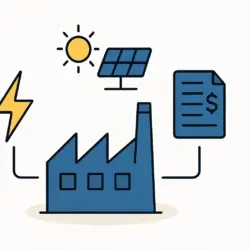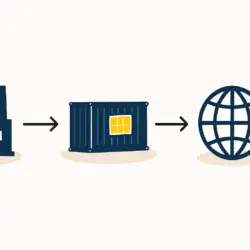Thailand is accelerating its transition to renewable energy, aiming to achieve 31% of its renewable energy capacity by 2025. This ambitious goal is a key part of the country’s broader strategy to reduce carbon emissions, combat climate change, and align with regional sustainability efforts. The government is actively promoting the development of renewable energy sources such as solar, wind, and biomass, backed by supportive policies and regulations designed to streamline growth.
The Landscape of Thailand Renewable Energy
Thailand’s renewable energy landscape is diverse, with solar power playing a central role in the transition. The country benefits from abundant sunlight, making solar energy a practical and efficient solution. This has spurred significant interest in the basics of solar panel manufacturing and deployment. Wind power also has significant potential, especially in coastal regions and elevated areas. Biomass energy, derived from agricultural and industrial waste, is another important component of Thailand’s renewable energy mix, leveraging its strong agricultural sector.
The government has implemented several initiatives to support this growth. These include feed-in tariffs, tax incentives, and subsidies for renewable energy projects. Critically, recent policy changes have focused on reducing bureaucratic obstacles to accelerate solar power deployment. The national Power Development Plan (PDP) outlines the country’s energy goals and strategies, with a clear focus on increasing the share of renewable energy in the national energy mix and setting a further target of 40% by 2035.
Investment and Infrastructure for Thailand Renewable Energy
Private investment is crucial to achieving Thailand’s renewable energy targets. The government has created a favorable investment climate, offering incentives to attract domestic and foreign investors. A clear example of this financial momentum is the Electricity Generating Authority of Thailand (EGAT) successfully raising funds through its debut sustainability-linked bond. Public-private partnerships (PPPs) are also playing a key role in developing the necessary infrastructure, with companies like GUNKUL becoming integrated players in the renewable power value chain. For those looking to invest, understanding the solar panel manufacturing plant cost breakdown is a crucial first step.
One of the major challenges is upgrading the national grid to accommodate the increasing share of variable renewable energy. The government is investing in smart grid technologies, which will enhance the efficiency and reliability of the power supply. These technologies, part of the broader ASEAN Power Grid initiative, will enable better integration of renewable energy sources, reducing reliance on fossil fuels and strengthening regional energy security.
Community Involvement and Sustainability in Thailand Renewable Energy
Thailand’s renewable energy strategy also emphasizes community involvement. The government is promoting community-based renewable energy projects, which empower local communities to participate in and benefit from the transition to clean energy. These projects create jobs, stimulate local economies, and contribute to sustainable development.
In addition to economic benefits, renewable energy projects have significant environmental advantages. By reducing reliance on fossil fuels, Thailand can lower its greenhouse gas emissions and improve air quality. Corporate leaders are also stepping up; for instance, the Bangchak Group has initiated a carbon capture project as part of its “BCP 316 NET” plan to achieve Net Zero emissions by 2050. These efforts align with Thailand’s commitments under the Paris Agreement, which aims to limit global warming and mitigate the impacts of climate change.
Challenges and Future Prospects for Thailand Renewable Energy
Despite the progress, Thailand faces several challenges. The intermittent nature of solar and wind power requires efficient energy storage solutions. The government is investing in research and development (R&D) to improve energy storage technologies, ensuring a stable and reliable power supply.
Another challenge is the need for a larger skilled workforce in the renewable energy sector. The government is addressing this by investing in education and training programs to develop skilled labor capable of supporting the entire renewable energy lifecycle, from understanding solar panel raw materials to installation and maintenance.
Looking ahead, Thailand’s renewable energy sector is poised for significant growth. The government’s commitment, coupled with strong private sector involvement, creates a solid foundation for achieving its 2025 and 2035 targets. The country’s progress is part of a larger regional trend, with neighbors like Myanmar and Laos also expanding their renewable capacities. This regional and global push, detailed in the Global Solar Report, underscores the worldwide shift towards sustainable energy.
Thailand’s push for renewable energy is a critical step towards a sustainable future. By embracing clean energy, the country is taking proactive measures to address climate change, reduce emissions, and promote sustainable development. With continued investment and innovation, Thailand is well-positioned to achieve its renewable energy goals and contribute significantly to global efforts to combat climate change.
To learn more about entering the solar industry, check out our free e-course.



